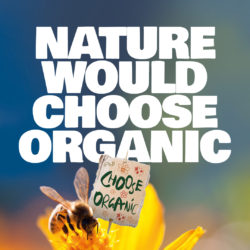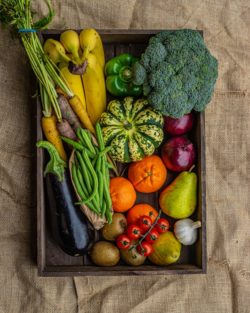What does Organic mean?

The word ‘organic’ is bandied around, with images of natural, fresh and green. That’s all well and good, but what does it actually mean for the planet?
This year, Organic September highlights Nature’s key workers: bees, butterflies, birds and other vital wildlife, who’s tireless work sees our crops growing and our food on our table. We couldn’t imagine a world without these central workers, but the reality is that traditional farming methods are a big contributor to the decline of wildlife.
Thankfully, Soil Association-certified farmers and producers work differently. With nature in mind, they protect and encourage increased wildlife. Planting trees, digging ponds and sowing wildflower meadows around their land are just some of the ways organic. And by doing so, organic farms have seen 50% more wildlife on average than conventional farms. What’s more, organic farms have also acted as a sanctuary for Britain’s wild bees, with 75% more recorded.

We find the climate change headlines hard to ignore, which is why at Better Food, organic food is at the heart of what we do. For example, where organic-certified farms do better, is through the health of their soils. By fertilising their fields with compost and clover, they’re building soil life – which, in turn, allows the land to store twice as much water, and sequester 3.5 tonnes more carbon per hectare (two football pitches) than conventional farms.
We believe eating organically and locally, is the key to a better, more sustainable future. So, thank you for choosing organic, whether simple swaps or great big shops.
Because, after all, if nature could talk – the answer would be organic.

